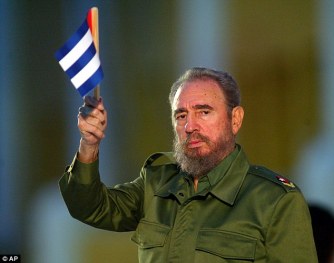
“Mr. Castro brought the Cold War to the Western
Hemisphere, bedeviled 11 American presidents and
briefly pushed the world to the brink of nuclear war.” – Anthony DePalma, New York Times
On November 25th, Fidel Castro died at the age of 90. Mr. Castro had been sick for many years, and in hopes of keeping his Communist revolution alive, he shifted the power to his younger brother Raúl Castro in 2006, formally resigning as president two years later. He has continued to rule Cuba since then, but has told the Cuban people that he will be resigning in 2018.
Fidel’s Reign
Castro remained in power longer than any other living national leader except for Queen Elizabeth 11. On January 8th, 1959, Fidel successfully entered Havana and completely overthrew Fulgencio Batista by giving his first notable speech in the capital in front of tens of thousands admirers. At the time, the people of Cuba were not aware of Castro’s plans for the future. He “believed himself to be the messiah of his fatherland, an indispensable force with authority from on high to control Cuba and its people”. He was known as Cuba’s “Máximo Lider”, acting as a tyrant and controlling every aspect of the republic. [Read Here]
Throughout decades Castro used threats against, jail, and banishment against critics (which included intellectuals, journalists, and former allies). Control over state media became Castro’s biggest weapon. Officials heavily censored books, newspapers, radio, television, music, and film. Havana was listed at the bottom of Reporter’s Without Borders press freedom index. In hopes for a democratic reform, the Cuban people used peaceful measures such as the Valera Project, which ultimately led to harsh crackdowns- like the Black Spring in 2003. “More than a million Cubans took to leaky boats and risked drowning to flee poverty, stagnation and a sense of claustrophobia which most blamed on Castro, not the US embargo.” [Article]
The Reaction
Following the death of this infamous Dictator- there are mixed feelings from the people:
People placed flowers and photos by a statue at the main steps of the University of Havana- where Castro attended law school-to pay respect.
Imran Khan, Pakistani politician, commended Castro as “an iconic revolutionary leader” who worked against the United States:
However, the reaction was much different on the streets of Little Havana in Miami:
People partied all day- waving the Cuban and American flag and singing festive songs.”They popped champagne, clanged pots, cheered and waved the Cuban flag in jubilation. They stood outside the popular Versailles restaurant in Little Havana with signs reading, ‘Satan, Fidel is now yours.”
Some American Politicians had their say as well:
A few hours later, Trump followed up with a statement, calling Castro a “brutal dictator who oppressed his own people for nearly six decades” and said he hoped Castro’s death gave Cuban American’s “the hope of one day soon seeing a free Cuba.” [Read Here]
President Obama also released a statement following the news of Castro’s death in which he said: “History will record and judge the enormous impact of this singular figure on the people and the world around him.” He added that the United States offers “a hand of friendship to the Cuban people. [Read Here]
So, the next step is deciding if, and how, there will be a relationship between Cuba and the United States.
